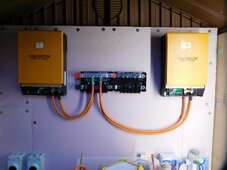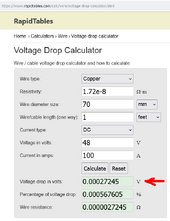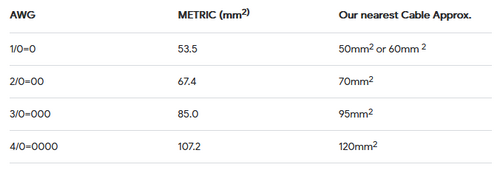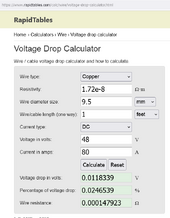SenileOldGit
Solar Enthusiast
- Joined
- Oct 15, 2022
- Messages
- 320
My electrician is installing my Voltacon 5kW inverters in a new shed I built for them - does it matter that the 70mm cables shown are different lengths? Or are they so thick that the resistance difference won't affect the voltage that each inverter sees from the three Pylontech US5000 batteries I have? (Which will be fitted to the Lynx Power In on the right, next week.)







